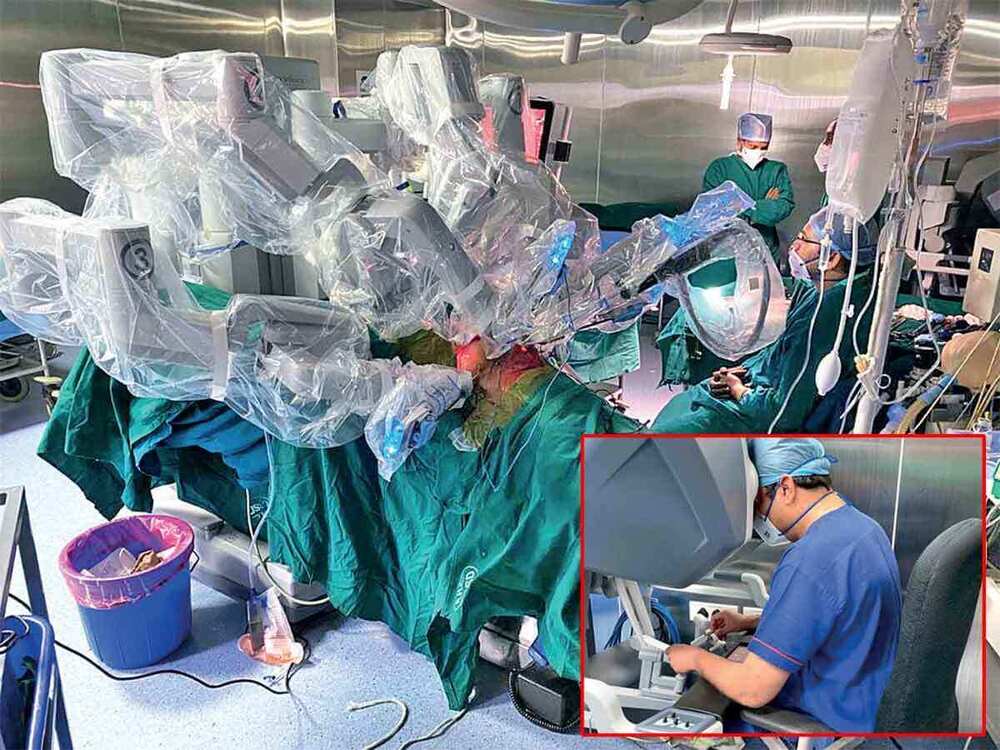Calls for Ukraine
Calls for Europe
Calls for USA

Kidney transplantation is a surgical operation to replace one non-functioning kidney with a healthy donor kidney. An organ transplantation is needed when the kidneys fail and the dialysis procedure is no longer able to filter the blood. Without a working kidney, a person cannot survive due to the poisoning of the body with waste products.
A kidney transplantation may be required for patients of any age. The need for a transplant may arise due to the occurrence of certain diseases. The most common reasons for a kidney transplantation are:
Patients of all ages – from children to the elderly – can undergo a kidney transplant. This is possible solely for medical reasons.
To undergo a kidney transplant, a patient needs to have such health indicators that he could undergo the operation. According to the National Kidney Foundation’s recommendations, every person who is eligible for a kidney transplantation should undergo a medical and psychological examination. This assessment helps identify any problems that can be corrected prior to surgery.
The main criteria for the selection of a transplantation are the correspondence of blood groups, histological HLA compatibility, approximate correspondence of the weight, age and sex of the donor and recipient. The donor must not be infected with vector-borne infections such as syphilis, HIV, hepatitis B and C.
What are the options for kidney transplantation:
Foreign medical centers are connected to special donor bases. Therefore, patients are more likely to receive a donor kidney on time if they go to a foreign clinic. National and international programs for living kidney donors operate in Turkey, Israel, Spain and some other countries with advanced medicine.
Cross kidney transplant
In cases where it is impossible to carry out a kidney transplantation from a family member due to incompatibility, a suitable pair of donor and recipient is selected for cross-transplantation. Thus, new couples are involved in the transplant – a candidate for implantation from one pair and a donor from another, between which there is compatibility.
A program with a large number of participants allows complex cross implantations between 5-7 pairs, and sometimes more. Representatives of different ethnic groups can take part in such a program. Such a large-scale cross-kidney transplantation operation can be organized in leading clinics abroad.
If foreign citizens come with their donor to the clinic for transplantation, they will have to go through several instances. The key ones are the Ethics Committee and the Court. The final decision on whether this person can be a donor is made during the court session. A donor can only be an altruist. If during a conversation with a psychologist and forensic expert there is a suspicion of a material interest, the patient will not receive permission for a kidney transplant.
The removal of one organ has almost no effect on the donor’s life after a kidney transplant. The risks and complications after kidney transplantation for the donor are minimal. The only real danger is that the remaining kidney will stop functioning for whatever reason.

In foreign clinics, robotic installations and laparoscopes are used for kidney transplantation. Thanks to minimally invasive surgical techniques, the doctor makes a small incision up to 2 cm in the groin area and prepares the patient’s veins and arteries. The doctor then places the graft in the iliac fossa. There are several approaches to choosing a side for a kidney transplant. The right side, due to the more superficial location of the iliac vein, is preferable for transplantation, therefore, in most medical centers, it is the right side that is used.
The doctor places the donor kidney in the iliac region of the small pelvis, after which the vessels are sutured. This ensures the blood supply to the graft. The bladder is then connected to the ureter. All incisions are sutured and the kidney transplantation operation is completed. Minimally invasive surgical techniques can shorten the rehabilitation period and the patient is discharged from the hospital faster.
How long do patients stay in the hospital after a kidney transplant?
After the operation, the patient who received a kidney transplantation is in intensive care under the supervision of doctors. He is injected intravenously with nutrient solutions to support the body.
After a few days, the patient can walk. If the operation was performed by experienced doctors who used modern surgical methods, then after a maximum of 2 weeks the patient is discharged. He will need to go back to the clinic to have the stitches removed.
Thanks to the minimally invasive operation, the scar after kidney transplantation will be practically invisible. Minor imperfections on the skin can be easily removed by laser resurfacing in the beauty parlor.
Patients who have undergone a kidney transplantation must strictly follow the recommendations of the doctors. The main requirements after surgery include:

A kidney transplantation can only take place in a specialized transplant department. The medical center must have all the necessary equipment to carry out such an operation. Transplant specialists must have sufficient surgical experience to ensure the patient has a successful organ transplant and donor safety.
Which kidney transplantation clinics does the patient recommend?
Patients from the CIS who, with the support of MedTour, have already undergone surgery and left feedback after kidney transplantation, noted several foreign clinics. These are hospitals that have a positive track record of handling kidney transplantation issues from unrelated donors. Patient-recommended clinics are also known for the best organ survival rates in recipients.
University hospital LIV Istinye
All organ transplantation options are available at the hospital:
Liv Istinye hospital is the best transplantation medical institution in turkey. The doctors have extensive clinical experience in organ transplants, specializing in kidney transplants in children and adult patients. Unique surgeries are performed here, which are available in a few clinics around the world.
Liv Istinye advantages:
Medipol University Hospital
Doctors of the Medipol multidisciplinary clinic specialize in carrying out kidney transplants – more than 2 000 successful transplants with an organ survival rate of over 90%.
Clinic coordinators provide recipients with a donor search for 1 month. Patients undergo subsequent rehabilitation in the comfortable conditions of a hospital.
Hospital network «Asklepios» in Germany
The multidisciplinary center, according to the Medical Travel Quality Alliance, is the №1 clinic for foreign patients.
In the department of transplantation of Asklepios, a kidney transplantation from a related donor is performed.
Asklepios Barmbek employs internationally recognized doctors who are regularly ranked among the best specialists around the world.
Sourasky medical center in Israel
The transplant department at the Sourasky clinic is the largest in Israel. A kidney transplantation is performed in a low-traumatic way using a laparoscope.
Newsweek magazine ranked the hospital in the top 10 most popular hospitals for medical tourism in the world. In 2021, Sourasky Medical Center received the World’s Best Smart Hospitals award. This means that the hospital meets the best indicators in the treatment of patients and has the most modern equipment.
Teknon medical center in Spain
Teknon center is renowned in the field of transplantation thanks to Dr. Antonio Alcarez. He pioneered kidney transplantation for children (weighing up to 10 kg) at the Spanish Hospital Sant Joan de Deu. Now the doctor practices at Teknon Hospital and performs operations of any complexity.
The cost of a kidney transplantation will depend on a number of factors:
According to different clinics, the cost of an operation in the countries of the former CIS may be as follows:
In the CIS, kidney transplantation is carried out almost everywhere only from related donors. A few clinics can carry out a transplantation from an unrelated or deceased donor. This is due to restrictions at the legislative level and the limited clinical experience of doctors.
Approximate cost of operations abroad:
In clinics in Turkey and Israel, the patient can undergo any options for kidney transplantation from donors up to the 4th degree of relationship or unrelated compatible donors. This advantage gives the chance for a quick transplant search.
Leading medical centers abroad provide more guarantees for the engraftment of the organ and provide the most effective treatment after surgery. Donors and recipients receive a high-level service with safety guarantees for foreign patients.
Where do doctors get a kidney for transplant?
A blood relative of 1-4 degrees of kinship, spouse or non-relative can become a kidney donor. The main thing in the matter of transplantation is the compatibility of the donor and the recipient.
Foreign clinics have access to national and international databases of donor organs. Leading transplant departments abroad provide their patients with donor kidneys in compliance with all ethical and legal standards.
How long do people live after a kidney transplant?
With a successful engraftment of the organ, patients with a transplanted kidney live 15-20 years. Further surgery may be required.
How to get on the waiting list for a kidney transplant?
The donor is registered in a special registry in his country and informs his relatives about the decision. This is how donor bases are formed around the world.
The recipient needs to get on the waiting list for a referral from their primary care physician. This is the only way to get in line for donor organs.
MedTour coordinators will help you choose the country and clinic where you can now undergo a kidney transplantation operation.
How much does a kidney transplantation cost?
The price for kidney transplantation in the world’s best clinics is about $46 000. The final cost is influenced by the hospital’s pricing policy and the type of operation itself.
For example, a kidney transplantation in Ukraine may cost less than in Israel, but the key point is access to a donor base if there are no suitable candidates for organ transplantation among the recipient’s relatives. The queue for a kidney transplantation in Ukraine, as well as in Kazakhstan, Uzbekistan, Russia and Moldova, is too long. Therefore, it is more advisable to contact such a clinic abroad, where it’s more probable to carry out kidney transplantation as soon as possible.
Please rate the work of MedTour
